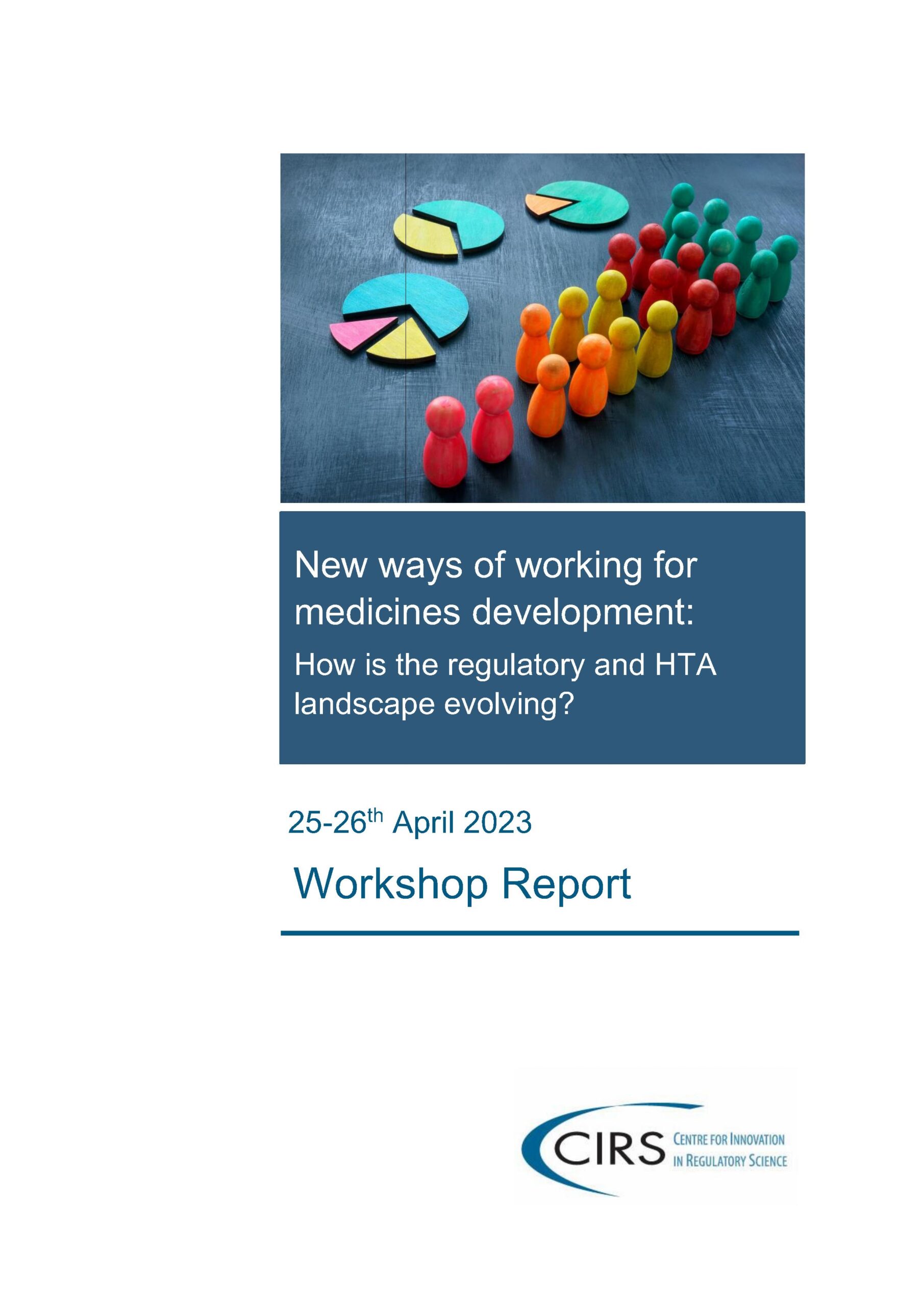CIRS brought agencies and companies together in a workshop to discuss new ways of working and how the regulatory and HTA landscape in mature and maturing countries should evolve over the next 10 years as new technologies and evidence generation methodologies develop, as well as the competencies and expertise required within companies and agencies.
This workshop builds on the CIRS 2021-2023 research theme to evaluate new ways of working and how the regulatory and health technology assessment (HTA) landscape will change. The medicine development landscape is evolving at an unprecedented pace in terms of:
- Types of medicines that are being developed, particularly the growing importance of advanced therapy medicinal products (ATMPs), including cell and gene therapies
- Use of digital health technologies (DHTs) to improve the R&D process in terms of efficiency, time to market, development cost and success rate for licensing
- Techniques for generating clinical evidence including the generation of real world data and evidence (RWD, RWE).
As agencies around the world are developing guidelines and policies to support these new ways of working, it is important that pharmaceutical companies and agencies not only stay up to date and ensure that the areas evolve as the regulatory science develops, but also horizon scan on the future direction of medicines development. It is important that agencies and companies put in place the capacity and competencies to ensure that their requirements, guidelines and processes are effective and efficient as well as fit for purpose.
In 2022, CIRS undertook a regulatory landscaping exercise focusing on Brazil, Argentina, Mexico, Colombia, China, Taiwan, South Korea, Saudi Arabia, Russia, South Africa, Canada and Australia. The study aims were to:
- Evaluate changes to the regulatory environment across ATMPs, DHTs and RWD/RWE for the selected countries, which are either evolving their regulatory systems as well as more established, similarly resourced agencies that will be used as a “reference”.
- Understand trends across recent guidelines/policies, current challenges as well as possible solutions and enablers (such as worksharing and collaboration efforts) that are influencing the regulatory landscape for ATMPs, DHTs and RWD/RWE.
One of the main feedback items from the industry survey was the need for cross jurisdictional and multi-stakeholder discussions to understand perspectives, to ensure creation of fit-for-purpose frameworks and alignment with international best practice. A reciprocal survey was undertaken with regulatory agencies and the results presented at this workshop alongside the results from the industry survey.
Workshop objectives
- Discuss the changing regulatory and HTA landscape for new products and how evidence is generated and utilised including both challenges and opportunities.
- Identify through specific areas such as ATMP review and use of RWE and DHT, how agencies are adapting their requirements to enable the development and review to ensure an efficient, effective and sustainable system.
- Make recommendations on how companies and agencies need to evolve to enable global development and registration of medicines, as well as what should be considered regarding convergence, alignment and harmonisation.

